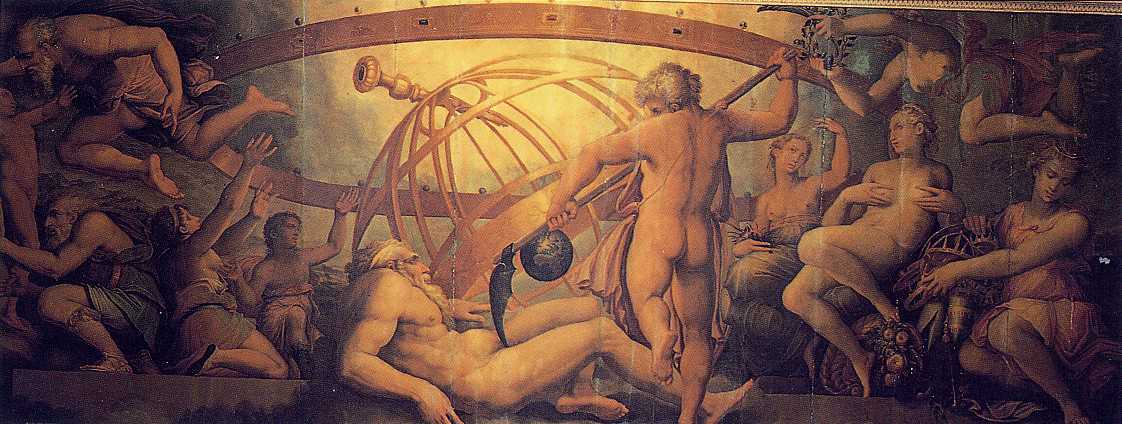

Uranus (Ancient Greek Οὐρανός, Ouranos meaning “sky” or “heaven”) was the primal Greek god personifying the sky. His equivalent in Roman mythology was Caelus. In Ancient Greek literature, Uranus or Father Sky was the son and husband of Gaia, Mother Earth. According to Hesiod’s Theogony, Uranus was conceived by Gaia alone, but other sources cite Aether as his father. Uranus and Gaia were the parents of the first generation of Titans, and the ancestors of most of the Greek gods, but no cult addressed directly to Uranus survived into Classical times, and Uranus does not appear among the usual themes of Greek painted pottery. Elemental Earth, Sky and Styx might be joined, however, in a solemn invocation in Homeric epic.
Genealogy
Most Greeks considered Uranus to be primordial, and gave him no parentage, believing him to have been born from Chaos, the primal form of the universe. However, in Theogony, Hesiod claims Uranus to be the offspring of Gaia, the earth goddess. Alcman and Callimachus elaborate that Uranus was fathered by Aether, the god of heavenly light and the upper air. Under the influence of the philosophers, Cicero, in De Natura Deorum (“Concerning the Nature of the Gods”), claims that he was the offspring of the ancient gods Aether and Hemera, Air and Day. According to the Orphic Hymns, Uranus was the son of Nyx, the personification of night.

Greek mythology
In the Olympian creation myth, as Hesiod tells it in the Theogony, Uranus came every night to cover the earth and mate with Gaia, but he hated the children she bore him. Hesiod named their first six sons and six daughters the Titans, the three one-hundred-handed giants the Hekatonkheires, and the one-eyed giants the Cyclopes.
Uranus imprisoned Gaia’s youngest children in Tartarus, deep within Earth, where they caused pain to Gaia. She shaped a great flint-bladed sickle and asked her sons to castrate Uranus. Only Cronus, youngest and most ambitious of the Titans, was willing: he ambushed his father and castrated him, casting the severed testicles into the sea.
For this fearful deed, Uranus called his sons Titanes Theoi, or “Straining Gods.” From the blood that spilled from Uranus onto the Earth came forth the Giants, the Erinyes (the avenging Furies), the Meliae (the ash-tree nymphs), and, according to some, the Telchines. From the genitals in the sea came forth Aphrodite.
Source: wikipedia
Be the first to comment